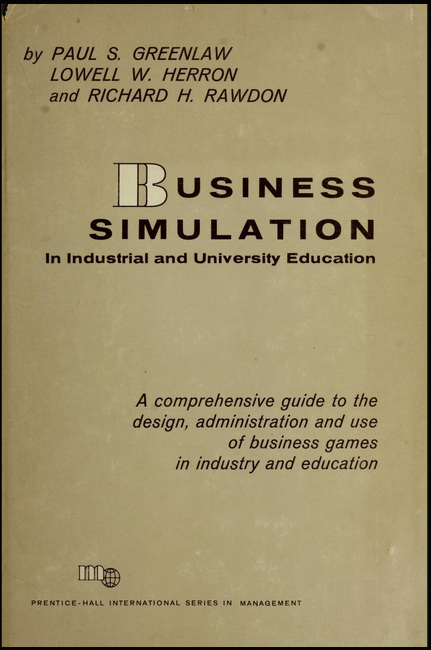The earliest mentions of "mechanics" in game design that I could find come from 1962, "Business Simulation in Industrial and University Education":
archive.org/details/busine…
Amusingly, the term is taken as granted and used without a definition, just like today. ;)
See below:
archive.org/details/busine…
Amusingly, the term is taken as granted and used without a definition, just like today. ;)
See below:
https://twitter.com/IanSchreiber/status/1123997581414162432
But due to the topic discussed (math-heavy business sim games) that usage of "mechanic" seems more akin to "rules" or "implementation".
A more modern usage seems to show up in the early 80s with the advent of arcade games, e.g. this review in Electronic Games, V 1 No 11, 1983:
A more modern usage seems to show up in the early 80s with the advent of arcade games, e.g. this review in Electronic Games, V 1 No 11, 1983:

Actually, check out this great game ad from 1979.
"Game mechanics are extremely simple, but play is exciting, challenging, and rich in detail."
Plus que ça change, plus que c'est la même chose :D
"Game mechanics are extremely simple, but play is exciting, challenging, and rich in detail."
Plus que ça change, plus que c'est la même chose :D

(Links for the above:
archive.org/details/Electr…
archive.org/details/BYTE_V…
The Internet Archive is amazing :) )
archive.org/details/Electr…
archive.org/details/BYTE_V…
The Internet Archive is amazing :) )
Although the term was already in use in wargaming in the early 1970s. For example, this bit from the Avalon Hill General, V 8 No 2, from 1971:
archive.org/details/Genera…
(thanks to @JarrydHuntley for the video link that introduced it)
archive.org/details/Genera…
(thanks to @JarrydHuntley for the video link that introduced it)

• • •
Missing some Tweet in this thread? You can try to
force a refresh










